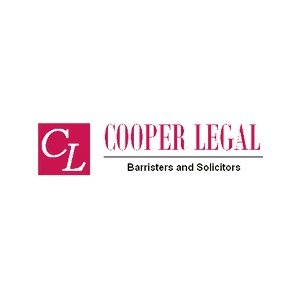Best Education Law Lawyers in Wellington
Share your needs with us, get contacted by law firms.
Free. Takes 2 min.
List of the best lawyers in Wellington, New Zealand
About Education Law in Wellington, New Zealand
Education Law in Wellington, New Zealand, encompasses a range of legal issues affecting the education sector, including students, parents, educators, and educational institutions. It involves the regulation of educational standards, the rights and responsibilities of students and teachers, school governance, and compliance with national education policies. Education Law ensures that educational institutions adhere to legal standards and that the rights of students and staff are protected under New Zealand's legal system.
Why You May Need a Lawyer
There are several common situations where individuals or institutions may require legal assistance in Education Law:
- Student Rights: Issues related to students' rights, such as discrimination, bullying, or disciplinary actions.
- Special Education Needs: Ensuring that students with special needs receive the appropriate support and services.
- Employment Disputes: Legal matters involving teacher and staff employment contracts, disputes, or dismissals.
- School Governance: Assistance with the governance and management of educational institutions.
- Compliance: Ensuring institutions comply with governmental standards and regulations.
- Policy Implementation: Legal guidance on implementing national and local education policies.
Local Laws Overview
In Wellington, Education Law is guided by several key legislative frameworks and regulations:
- Education and Training Act 2020: This legislation governs the operation of early childhood, primary, secondary schools, and tertiary education providers.
- National Education Guidelines: Set national priorities for schooling, including curriculum and assessment practices.
- Human Rights Act 1993: Protects students and staff from discrimination in education settings.
- Privacy Act 2020: Governs the collection, use, and disclosure of personal information within education providers.
- The New Zealand Bill of Rights Act 1990: Ensures that educational practices do not infringe on students' fundamental rights and freedoms.
Frequently Asked Questions
What rights do students have in New Zealand schools?
Students in New Zealand have the right to a safe learning environment, free from discrimination and bullying. They also have the right to express their opinions and access education that meets their learning needs.
How can I address a case of bullying in school?
Start by reporting the incident to the school's administration. If the issue persists, you may consider seeking legal advice to ensure proper actions are taken to address and resolve the situation.
What are the obligations of schools towards students with special needs?
Schools are required to provide reasonable accommodations to students with special needs, ensuring they have equal access to education and necessary resources specific to their requirements.
Can international students attend public schools in Wellington?
Yes, international students can attend public schools in New Zealand, but they may need to apply for a student visa and pay international student fees.
Who oversees the educational standards in Wellington?
The Ministry of Education oversees educational standards across New Zealand, ensuring compliance with national standards and guidelines in Wellington.
What legal protections exist for teachers in employment disputes?
Teachers are protected by employment laws that cover contracts, fair treatment, and dispute resolutions. Legal advice can be sought in cases of unfair dismissal or workplace harassment.
Are there specific laws about homeschooling in New Zealand?
Parents may homeschool their children but must obtain approval from the Ministry of Education and follow certain legal obligations regarding the curriculum and recordkeeping.
What should I do if I disagree with a school's disciplinary action against my child?
Begin by discussing your concerns with school officials. If unresolved, consider seeking mediation or legal advice to explore your options further.
How is student privacy protected in schools?
Student privacy is protected under the Privacy Act 2020, which regulates the collection, use, and disclosure of personal information within educational institutions.
Can parents be involved in school decision-making processes?
Parents are encouraged to participate in school decision-making through boards of trustees and parent-teacher associations, offering input on various educational and administrative matters.
Additional Resources
Several resources and organizations can provide guidance and assistance in Education Law:
- Ministry of Education: Offers resources and information on educational policies and regulations.
- New Zealand Educational Institute (NZEI): Provides support for teachers, principals, and other education-related professionals.
- Human Rights Commission: Addresses concerns related to discrimination and the protection of human rights in education.
- Community Law Wellington: Offers free legal advice on a range of issues, including education law.
Next Steps
If you require legal assistance in Education Law, consider the following steps:
- Identify the Issue: Clearly outline the legal issue or concern you are facing.
- Gather Documents: Collect all relevant documents and records related to your legal issue.
- Consultation: Seek an initial consultation with a lawyer specializing in Education Law to discuss your case.
- Explore Resources: Utilize the recommended resources and organizations for additional support and information.
- Legal Representation: If necessary, engage a lawyer to represent your interests and ensure your rights are protected in any legal proceedings.
Lawzana helps you find the best lawyers and law firms in Wellington through a curated and pre-screened list of qualified legal professionals. Our platform offers rankings and detailed profiles of attorneys and law firms, allowing you to compare based on practice areas, including Education Law, experience, and client feedback.
Each profile includes a description of the firm's areas of practice, client reviews, team members and partners, year of establishment, spoken languages, office locations, contact information, social media presence, and any published articles or resources. Most firms on our platform speak English and are experienced in both local and international legal matters.
Get a quote from top-rated law firms in Wellington, New Zealand — quickly, securely, and without unnecessary hassle.
Disclaimer:
The information provided on this page is for general informational purposes only and does not constitute legal advice. While we strive to ensure the accuracy and relevance of the content, legal information may change over time, and interpretations of the law can vary. You should always consult with a qualified legal professional for advice specific to your situation.
We disclaim all liability for actions taken or not taken based on the content of this page. If you believe any information is incorrect or outdated, please contact us, and we will review and update it where appropriate.









